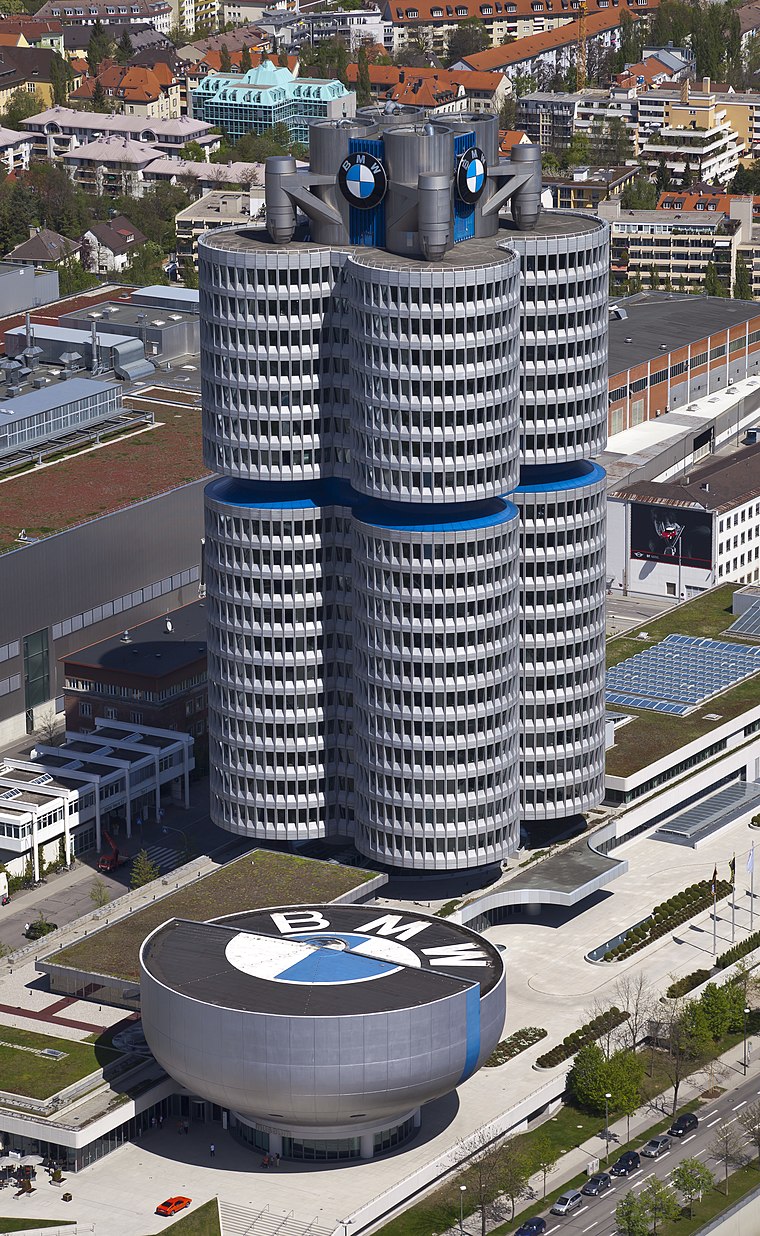
“10 Fascinating BMW Facts: Innovation, Luxury, and Global Impact”
Founding and History
BMW, short for Bayerische Motoren Werke AG, was founded in 1916 in Munich, Germany. Originally established as a manufacturer of aircraft engines, the company played a significant role in aviation during World War I. However, after the Treaty of Versailles prohibited Germany from producing aircraft engines, BMW pivoted to motorcycle production in the 1920s. This shift laid the foundation for the brand’s later success in the automotive industry, with the company producing its first car, the BMW 3/15, in 1928.

Iconic Logo
The BMW logo, known as the “roundel,” is one of the most recognizable emblems in the automotive world. The logo features a black ring with four quadrants of blue and white. Contrary to popular belief, the logo does not depict a spinning propeller but instead represents the Bavarian flag’s colors, symbolizing the brand’s origins in Bavaria. However, the logo’s association with aviation heritage has led to the common propeller interpretation.

Innovation in Technology
BMW has consistently been at the forefront of automotive innovation. The brand is renowned for introducing cutting-edge technologies that have set industry standards. In 2013, BMW launched the i3, the world’s first mass-produced electric car designed for urban use. The i3 was not only a milestone in electric vehicle (EV) development but also highlighted BMW’s commitment to sustainable mobility. Additionally, the company has been a pioneer in advanced driving assistance systems (ADAS) and hybrid powertrains, further solidifying its reputation as a technology leader.

Performance and Motorsport Heritage
BMW’s reputation for performance is deeply rooted in its motorsport heritage. The brand has been a dominant force in touring car and Formula 1 racing, where it has demonstrated engineering excellence and a relentless pursuit of speed and precision. BMW’s M division, responsible for high-performance variants of its standard models, is synonymous with exhilarating driving dynamics and meticulous engineering. The iconic BMW M3 and M5 models, for example, are celebrated for their blend of power, agility, and luxury.
Global Presence
BMW is a global automotive powerhouse, with a presence in over 150 countries. The company operates 31 production and assembly facilities in 15 countries, ensuring its vehicles are manufactured close to its key markets. BMW’s global footprint has enabled it to cater to diverse customer preferences while maintaining a consistent standard of quality across its product range.

Luxury and Design
BMW is synonymous with luxury and innovation, crafting vehicles that are as technologically advanced as they are visually striking. The brand’s design philosophy combines elegance with a focus on driving pleasure, resulting in cars that are both aesthetically pleasing and performance-oriented. BMW’s interiors are renowned for their craftsmanship, use of premium materials, and integration of cutting-edge technology, offering a driving experience that is both luxurious and immersive.

Sustainable Practices
Sustainability is a core component of BMW’s strategy. The company has committed to reducing its environmental impact by incorporating eco-friendly materials and processes into its manufacturing. BMW’s production facilities are increasingly powered by renewable energy, and the brand is focused on reducing CO2 emissions across its entire value chain. The introduction of electric vehicles like the BMW i4 and iX demonstrates the brand’s dedication to a sustainable future, offering consumers a choice that aligns with their environmental values.
Global Manufacturing
BMW’s extensive global manufacturing network enables it to produce vehicles in key markets, reducing logistics costs and ensuring that it can meet regional demand efficiently. The company’s manufacturing facilities are known for their advanced production techniques, including the use of robotics, artificial intelligence, and other Industry 4.0 technologies. These innovations not only improve efficiency but also allow BMW to maintain the high quality standards for which it is known.

Brand Portfolio
Beyond its core BMW brand, the company also owns MINI and Rolls-Royce, two brands that cater to distinct segments of the automotive market. MINI, known for its compact and stylish vehicles, appeals to a younger and more urban demographic, while Rolls-Royce represents the pinnacle of luxury and craftsmanship. The diverse brand portfolio allows BMW to appeal to a broad range of consumers, from those seeking practical city cars to those desiring the utmost in luxury and exclusivity.
Cultural Impact
BMW’s vehicles have transcended the automotive world to become cultural icons. From their appearances in blockbuster films to being featured in popular music, BMWs have left an indelible mark on global pop culture. The brand’s association with sophistication, performance, and cutting-edge technology has made it a symbol of success and aspiration for many.
Engineering Excellence and Safety
BMW’s commitment to engineering excellence extends to safety. The company has consistently been recognized for its innovations in vehicle safety, from the introduction of the first anti-lock braking system (ABS) in a production car to the development of advanced driver assistance systems. BMW’s vehicles undergo rigorous testing to ensure they meet the highest safety standards, providing peace of mind to drivers and passengers alike.
Commitment to Research and Development
BMW invests heavily in research and development (R&D) to stay ahead of industry trends and meet future mobility challenges. The company has established multiple R&D centers worldwide, focusing on areas such as autonomous driving, battery technology, and artificial intelligence. This commitment to innovation ensures that BMW remains at the cutting edge of automotive technology, continuously pushing the boundaries of what is possible.

Community Engagement and Social Responsibility
BMW is also committed to social responsibility, engaging in numerous initiatives aimed at improving the communities in which it operates. The company’s corporate social responsibility (CSR) programs focus on education, sustainability, and cultural initiatives, reflecting its belief in the importance of giving back to society. BMW’s involvement in community projects and charitable causes further enhances its reputation as a brand that not only produces world-class vehicles but also contributes positively to the world.
In conclusion, BMW’s legacy is built on a foundation of innovation, performance, and a commitment to excellence. From its origins as an aircraft engine manufacturer to its current status as a global leader in luxury automobiles, BMW has consistently pushed the boundaries of what is possible in the automotive industry. As the brand continues to evolve, its dedication to sustainability, cutting-edge technology, and social responsibility ensures that it will remain a driving force in the automotive world for years to come.


